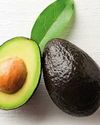Anything that has been found in food which is not reasonably expected to be found by a consumer during consumption refers to foreign objects in food.

This makes the food unfit for consumption. For example, things like stones, rocks, glass, hard plastic, or sharp material may wind up in food. As well as some ingredients that are not supposed to be in consumable food items or were not listed as an ingredient on the label and the consumer did not expect them to be present in food, would be considered as a foreign object.
Presence of foreign objects in food increases the risk of consumer dissatisfaction, regulatory risk, chances of a product recall, and in some instances it may damage the brand image. As per reports, a total of 40+ extraneous material recalls were issued in the U.S. in 2017, with metal (12) and plastic (11) contaminations topping the list in this category.
Last year, more than 60,000 kilograms of chicken nuggets were recalled after famous nugget manufacturer found out that their nuggets might have bits of hard plastic inside them. The USDA fielded complaints from naive nugget consumers who said they’d found strips of plastic up to about 20 millimeters long inside their chicken. After this incident, the company mentioned in a statement that they had installed sufficient numbers of metal detectors and the nuggets were run through those detectors before reaching out to the consumers, but who knew that these detectors would be unable to catch the plastic pieces.
To avoid such issues, manufacturers must deploy a suitable mechanism to detect and eliminate any possible foreign object in the finished goods. Selection of the mechanism must be based out of basic risk assessment and the type of possible foreign object in the entire process.
This story is from the May 2019 edition of Food Marketing & Technology - India.
Start your 7-day Magzter GOLD free trial to access thousands of curated premium stories, and 9,000+ magazines and newspapers.
Already a subscriber ? Sign In
This story is from the May 2019 edition of Food Marketing & Technology - India.
Start your 7-day Magzter GOLD free trial to access thousands of curated premium stories, and 9,000+ magazines and newspapers.
Already a subscriber? Sign In

Avocados: Health Benefits And Sustainable Cultivation
ATTRACTIVE GROWTH SEGMENT - In only a few years, the avocado has developed from being a rather a and has become an integral part of modern cuisine and in restaurants throughout Europe and beyond.

UFlex to Showcase Innovative and Sustainable Printing and Packaging solutions at DRUPA 2024
U Flex Limited, India's largest multinational flexible packaging and solutions company, is participating in DRUPA 2024, the premier global trade fair for print and packaging innovations, scheduled to take place in Dusseldorf, Germany from March 28 to June 7, 2024.

Hubergroup and Manroland Goss unite for Sustainable Packaging Innovation
Hubergroup, a global specialist in and chemicals, has partnered with manroland Goss web systems, a leading provider of web offset printing solutions, in a strategic collaboration.

Technological Advancements in the Premium Flavour, Extract and Concentrate Industry
Food Marketing & Technology Magazine had the privilege of hosting the fourth edition of their business webinar on “Technological Advancements in the Premium Flavour, Extract and Concentrate Industry” with Paul Ahn, Global Sales Manager, Flavourtech.

Flavourtech's Origins: From Wine to Worldwide Flavor Solutions
LEON SKALIOTIS, CEO of Flavourtech - Discover how Flavourtech, founded over 40 years ago by an innovative winemaker in Australia, evolved from addressing grape juice desulphiting to revolutionizing flavor extraction and concentration across various industries.

How CPG Companies Can Adopt Better Sustainable Packaging Practices in 2024
Sustainability has gone mainstream. With more switching to consumers environmentally friendly brands, it's become a central theme across all industries.

The Evolution of the Protein Value Chain Sustainable Protein Systems for a Growing World
As the world's population is on course to surpass ten billion by 2050, our food systems face the challenge of providing sustainable nutrition without further harming harming the planet. Animal-based diets and the reliance on animal-derived proteins are significant contributors to environmental degradation and public health issues. Not only is the global population increasing, but the expanding middle class in developing nations is driving a surge in protein demand, intensifying the strain on our environment.

Implementing the Technological Intelligence in Agricultural Produce
It is estimated that by 2050 the I world's population will be around 10 billion. From employment generation to contribution to National Income, agriculture is important to all of us as agricultural produce is the core on which we survive. It contributes a significant portion to the economic prosperity of the developed nations and plays an active part in the economy of the developing countries as well.

Cocoa Crises: A Sweet Industry's Bitter Challenge
As a pastry chef and entrepreneur running a small-scale baking business, I have always believed in the magic of cocoa. From the velvety richness of couverture chocolate to the deep, earthy notes of cocoa powder to the creamy allure of cocoa butter, these ingredients are the essence of our creations.

Ethylene Oxide (ETO) Detection in Ready-Made Spice Mixes: Ensuring Food Safety
INTRODUCTION - In the world of culinary delights, ready-made spice mixes hold a cherished place, adding convenience and flavour to countless dishes. However, recent concerns over food safety have brought to light the presence of ethylene oxide (ETO) in some of these products.